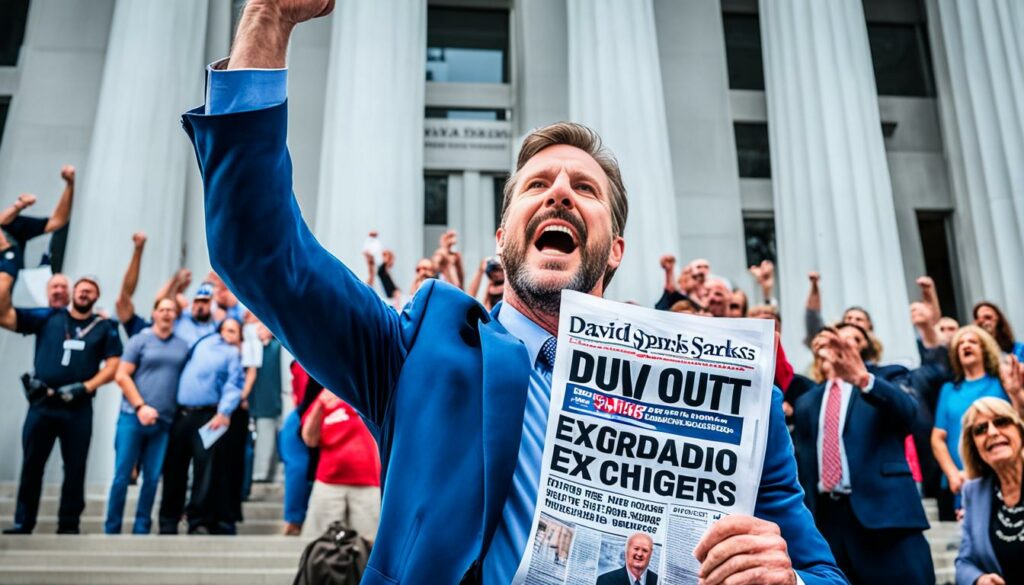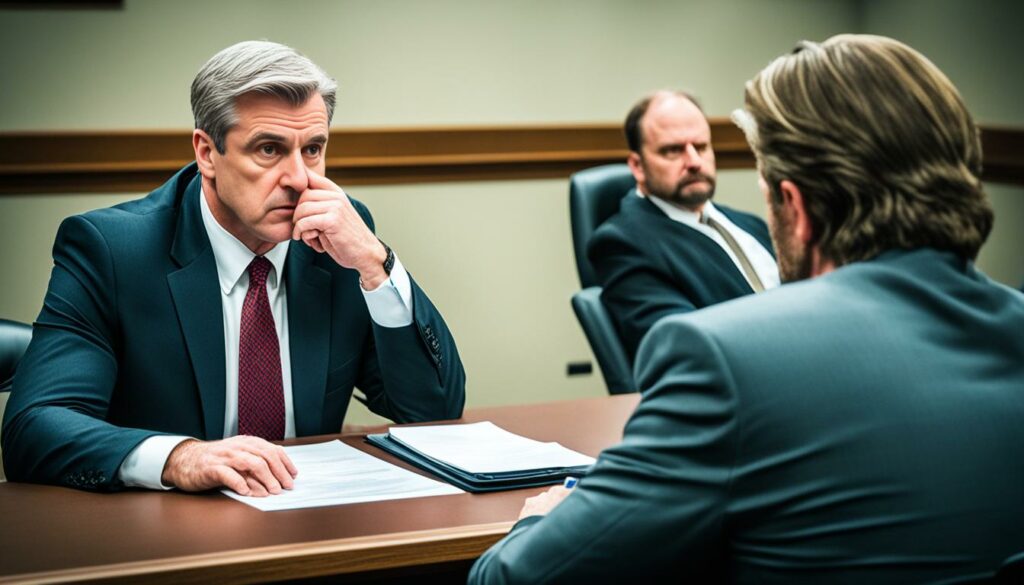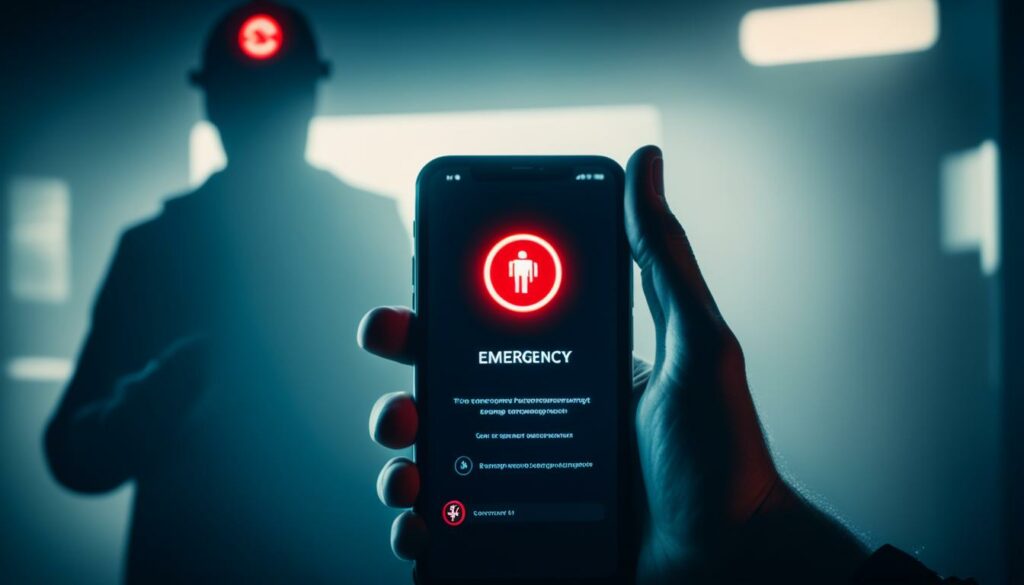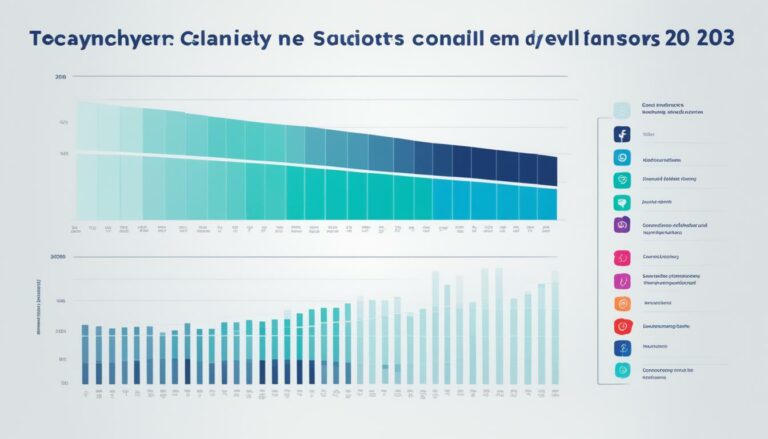Philly Teen Witnesses Murder, Calls 911 for Help
In a harrowing incident in Philadelphia, a local teenager became an eyewitness to a horrific crime and immediately took action by calling 911. This courageous act demonstrates both the bravery and responsibility of our youth in emergency situations. When faced with danger, this Philly teen knew that reporting the crime to emergency services was crucial in aiding law enforcement and ensuring swift justice.
Witnessing a murder is an overwhelming and traumatic experience, especially for a young individual. However, this teenager’s quick thinking and courage in reporting the incident to the authorities played a vital role in initiating the emergency response and assisting in the subsequent investigations. Their actions highlight the significance of witness testimonials in solving violent crimes and holding perpetrators accountable.
In this article, we will delve into the details of this alarming incident and examine the impact of the teenager’s 911 call. We will also explore the wrongful conviction that followed, the subsequent exoneration, and the larger issues surrounding the criminal justice system.
Key Takeaways:
- A Philadelphia teenager witnessed a murder and promptly contacted 911 for help.
- Quick reporting of crimes to emergency services is crucial for facilitating law enforcement’s response.
- Teen witnesses play a significant role in assisting investigations and ensuring justice.
- Contacting authorities after witnessing violent incidents is an essential civic responsibility.
- Reporting criminal activities to the police contributes to community safety and the prevention of crime.
The Wrongful Conviction of David Sparks
David Sparks, an innocent individual, fell victim to a grave miscarriage of justice in the Philadelphia murder case of Gary Hall in 2008. Despite being the eyewitness who called 911 to report the crime, Sparks was wrongly convicted due to a flawed investigation and suppressed evidence. The Philadelphia police disregarded critical information implicating another suspect, Ivan Simmons, and failed to conduct a thorough and unbiased inquiry.
During Spark’s trial, inconsistent witness testimony further compounded the wrongful conviction. Witnesses provided contradictory accounts, creating doubts about the accuracy of their statements. The investigation lacked integrity, as the authorities neglected essential evidence and allowed inconsistencies to cast a shadow over Spark’s innocence.
“The justice system failed David Sparks, and his wrongful conviction sheds light on the pressing need for reform to protect innocent individuals from such injustices. The flaws in this case exposed the potential for misconduct, demonstrating the importance of conviction integrity and the need to address inconsistent witness testimony and flawed investigative procedures.”
The wrongful conviction of David Sparks is a stark example of the devastating consequences of Philadelphia police misconduct and flawed investigations. It highlights the crucial importance of preserving integrity within the criminal justice system to ensure the protection of innocent individuals and prevent wrongful convictions.
Continue reading to learn about the diligent efforts that ultimately led to David Sparks’ exoneration and the impact of suppressed evidence in Section 3.
The Exoneration of David Sparks

After years of legal proceedings and the involvement of the Philadelphia District Attorney’s Conviction Integrity Unit (CIU), David Sparks was ultimately exonerated in 2023. The CIU’s investigation uncovered crucial new evidence and exposed constitutional rights violations that had occurred during Sparks’ trial.
During the trial, the Philadelphia police suppressed witness information that implicated Ivan Simmons, potentially pointing to his involvement in the murder of Gary Hall. The CIU’s review of the case revealed that this suppression of evidence violated Sparks’ constitutional rights and compromised the integrity of the trial.
In addition to the suppressed witness information, ballistics analysis conducted as part of the CIU’s investigation revealed a link between the murder of Gary Hall and another unsolved murder in which Simmons was suspected to be involved. This connection further cast doubt on Sparks’ guilt and highlighted the need for a reevaluation of the evidence.
Based on this new evidence, as well as the constitutional violations that were uncovered, Sparks’ legal team filed a Post-Conviction Relief Act (PCRA) petition to challenge his conviction. The CIU’s findings and the presented information were instrumental in securing Sparks’ exoneration and subsequent release.
Impact on the Case
The newly discovered evidence and the constitutional rights violations had a profound impact on the case. It shifted the focus of the investigation towards Ivan Simmons’ involvement in the murder, undermining the previously held belief in Sparks’ guilt.
The suppressed witness information played a crucial role in challenging the prosecution’s narrative. The Philadelphia police’s omission of this evidence allowed for an incomplete and biased presentation of the facts, leading to an erroneous conviction.
The ballistics analysis connecting the murder of Gary Hall to another unsolved case helped establish a pattern of criminal behavior that Ivan Simmons may have been involved in. By linking various crimes, it provided a more complete picture of the events and shed light on the true circumstances surrounding Hall’s murder.
The exoneration of David Sparks, made possible by the Philadelphia District Attorney’s Conviction Integrity Unit and the uncovering of new evidence, highlights the importance of upholding constitutional rights, ensuring transparency in investigations, and pursuing justice relentlessly.
The Impact of Suppressed Evidence

The wrongful conviction of David Sparks was a result of the Philadelphia police deliberately withholding crucial evidence. Witness statements implicating Ivan Simmons, along with undisclosed documents that could have cleared Sparks, were suppressed. This violation of the Brady rule, which mandates the disclosure of exculpatory evidence, significantly influenced the outcome of the trial.
By withholding information, the Philadelphia police compromised the integrity of the trial and denied Sparks a fair defense. The suppression of witness statements and undisclosed documents undermined the effectiveness of Sparks’ legal representation, leading to an ineffective defense. This misconduct by the police highlights the dire consequences that can arise from such actions in a criminal case.
“The suppression of evidence in the case of David Sparks is a clear violation of his constitutional rights,” stated defense attorney Lisa Evans. “It is a glaring example of police misconduct and a failure to uphold justice.”
The consequences of suppressing evidence are far-reaching and often result in wrongful convictions and the imprisonment of innocent individuals. In the case of David Sparks, the suppressed evidence robbed him of his freedom, subjecting him to years of imprisonment for a crime he did not commit.
The Brady Violations
The deliberate suppression of witness statements and undisclosed documents by the Philadelphia police in David Sparks’ case constitutes Brady violations. The Brady rule, established by the Supreme Court in the landmark case Brady v. Maryland, requires prosecutors to disclose any evidence favorable to the defendant that could potentially impact the outcome of the trial. Failure to comply with this rule undermines the fairness and integrity of the criminal justice system, leading to wrongful convictions and devastating consequences for innocent individuals.
Philadelphia Police Misconduct
The misconduct displayed by the Philadelphia police in suppressing evidence reflects a serious issue within the department. The deliberate withholding of crucial information not only denies defendants their constitutional rights but also undermines public trust in law enforcement. It is imperative that measures are taken to address and rectify such misconduct to ensure a fair and just legal system.
| Evidence Type | Consequences |
|---|---|
| Suppressed witness statements | Denial of crucial exculpatory evidence, hindering the defense’s ability to challenge the prosecution’s case. |
| Undisclosed documents | Failure to provide evidence that could potentially exonerate the defendant, leading to wrongful convictions. |
| Brady violations | Violation of the defendant’s constitutional rights and compromise of the fairness and integrity of the trial. |
Inconsistent Witness Testimony
The prosecution’s case heavily relied on the testimony of two teenage eyewitnesses who provided inconsistent statements concerning the murder of Gary Hall. These witnesses, who happened to be cousins, presented contradictory accounts of the crime and the alleged involvement of both David Sparks and Ivan Simmons. The reliability of their identification process was further called into question when one of the witnesses later recanted a significant portion of her testimony. This inconsistency in their statements raises doubts about the accuracy of the initial trial and highlights the potential for unreliable witness testimony.
Investigation into Retaliatory Shootings

The investigation into the murder of Gary Hall uncovered a disturbing cycle of retaliatory violence involving rival groups in the Nicetown neighborhood of Philadelphia. The killing of Ivan Simmons, a suspect in Hall’s murder, is believed to be a direct result of this ongoing feud.
What makes this situation even more concerning is the suppression of vital information that connects these incidents. As a result, numerous crimes have gone unaddressed, and murder cases remain unresolved, perpetuating a dangerous cycle of violence within the community.
Unless the underlying issues fueling retaliatory violence are tackled head-on and the suppressed information is brought to light, the cycle of violence is likely to persist, leading to untold harm and loss of life.
| Consequences of Retaliatory Violence | Impact on the Community |
|---|---|
| Continued loss of life and injuries | Heightened fear and insecurity |
| Increased strain on law enforcement resources | Impeded trust in local authorities |
| Intergenerational cycle of violence | Disruption of community cohesion |
“The suppression of information and the resulting lack of justice only perpetuate the cycle of violence. We must address the root causes and ensure that all crimes are thoroughly investigated and resolved.”
Combating retaliatory violence requires a comprehensive approach, including increased community engagement, improved law enforcement efforts, access to education and economic opportunities, and enhanced social services. By addressing the underlying issues that contribute to these conflicts and providing adequate support to those affected, we can break the cycle of violence and build safer, more resilient communities.
The Role of 911 and Emergency Response

The immediate action of calling emergency services plays a pivotal role in emergency situations, as demonstrated in the case of David Sparks. When Sparks witnessed the murder of Gary Hall, his prompt decision to call 911 proved to be crucial in facilitating a swift response and providing accurate information to aid the investigation. This highlights the significance of quick thinking and the importance of reporting incidents to the appropriate authorities.
In emergency situations, every second counts. By contacting emergency services without delay, individuals like Sparks enable quick action and ensure that the necessary assistance is dispatched promptly. This rapid response can be the difference between life and death, making it imperative for witnesses and bystanders to promptly call for help. The role of 911 cannot be understated in facilitating timely intervention and ensuring the safety of those involved.
Furthermore, reporting incidents to emergency services not only helps in providing immediate assistance, but it also plays a vital role in facilitating investigations. The accurate and timely information provided during the emergency call can serve as crucial evidence and help law enforcement agencies identify suspects, gather relevant details, and establish timelines. This can significantly contribute to the resolution of criminal cases and help bring justice to the victims and their families.
The 911 emergency services hotline serves as a lifeline during critical situations, enabling individuals to provide vital information that aids investigative efforts. Young witnesses, like David Sparks, can play a crucial role in helping law enforcement agencies gather accurate information and piece together the events leading to a crime. Their testimonies can provide valuable insights and assist in building a strong case against perpetrators.
By understanding the importance of reporting incidents promptly and providing accurate information during emergency calls, individuals can actively contribute to the safety of their communities. Quick action and effective communication through the emergency services system are vital components in ensuring effective emergency response and facilitating thorough investigations.
The Fight for Justice
David Sparks’ exoneration is a testament to the tireless efforts of organizations like the Pennsylvania Innocence Project and the Conviction Integrity Units within district attorney’s offices. These entities are dedicated to advocating for wrongfully convicted individuals and rectifying miscarriages of justice. The Pennsylvania Innocence Project, a nonprofit legal organization, works relentlessly to exonerate the wrongfully convicted by investigating claims of innocence, conducting DNA testing, and fighting for reform within the criminal justice system.
The Conviction Integrity Units, established by district attorneys across the country, including Pennsylvania, play a crucial role in reviewing cases where innocence claims arise or where concerns regarding the integrity of convictions are raised. These units work collaboratively with defense advocates, independent investigators, and legal experts to identify and correct wrongful convictions. Through their efforts, wrongful convictions are being overturned, and innocent individuals are given a chance to rebuild their lives.
The case of David Sparks underscores the urgent need for reform within the criminal justice system. It highlights the importance of fair investigations, the disclosure of all relevant evidence, and the protection of the rights of the accused. By advocating for changes such as improved police practices, prosecutorial accountability, and increased transparency, these organizations are working towards preventing future wrongful convictions and ensuring a more equitable and just criminal justice system for all.
The Consequences of Wrongful Convictions
Wrongful convictions like that of David Sparks have far-reaching consequences, not only for the innocent individuals who are unjustly imprisoned but also for their families and communities. These individuals lose precious years of their lives, facing the detrimental effects of severe psychological and emotional trauma.
The psychological impact of a wrongful conviction cannot be overstated. Innocent individuals endure the anguish of being labeled a criminal, with their lives forever altered by the loss of personal freedom and the constant struggle for justice. The trauma experienced during their time in prison can lead to lasting mental health issues, such as anxiety, depression, and post-traumatic stress disorder.
Furthermore, the consequences extend beyond the wrongfully convicted individuals themselves. Families are torn apart as loved ones are unjustly torn from their lives. The emotional toll of witnessing a loved one’s wrongful conviction and imprisonment can be devastating, causing immense pain and uncertainty.
In addition to the emotional impact, wrongful convictions have ripple effects throughout communities. When an innocent person is wrongfully convicted, the true perpetrator remains free, posing a continued threat to society. The failure to apprehend the real criminal perpetuates a sense of injustice and erodes trust in the criminal justice system. Moreover, unresolved cases result in unaddressed crimes, leaving victims and their families without closure.
“Wrongful convictions not only rob individuals of their freedom but also erode public trust in the fairness and effectiveness of our criminal justice system.”
Reintegration into society can be an arduous journey for those wrongfully convicted. The stigma attached to having a criminal record, even if later overturned, can hinder employment prospects, strain personal relationships, and limit access to housing and social services. The struggle for reintegration is often exacerbated by the absence of proper support systems and resources for exonerees.
While financial compensation is sometimes available for those exonerated, it cannot fully restore the lost years and opportunities. No amount of money can undo the physical and emotional trauma endured or replace the time spent imprisoned for a crime they did not commit. Financial compensation is just one component in the complex process of rebuilding lives shattered by wrongful convictions.
The consequences of wrongful convictions are profound and far-reaching. They highlight the urgent need for criminal justice reforms, including enhanced safeguards to protect against miscarriages of justice, improved investigative techniques, and ongoing support for exonerees. By learning from these cases, we can work towards a justice system that upholds truth, integrity, and the preservation of innocent lives.
Seeking Justice for All
The wrongful conviction of David Sparks exposes the urgent need for accountability and transparency within the criminal justice system. Cases like Sparks’ underscore the detrimental impact of prosecutorial misconduct, police misconduct, and systemic flaws that contribute to the wrongful incarceration of innocent individuals. In the pursuit of justice, it is essential to hold those responsible accountable for their actions and implement systemic reforms that ensure equal access to justice for all.
Prosecutorial misconduct refers to unethical or illegal behavior by prosecutors, such as withholding evidence or engaging in deceptive tactics to secure convictions. Such misconduct undermines the integrity of the criminal justice system and can lead to the wrongful conviction of innocent individuals.
Police accountability is crucial in ensuring that law enforcement agencies are held responsible for their actions. Instances of police misconduct, including fabrication of evidence or coercion of witnesses, not only jeopardize the fairness of trials but also erode public trust in the justice system.
To address these issues, transparency is paramount. Increased transparency in all stages of the justice process, from investigations to trials, helps build trust and confidence in the system. It allows for scrutiny and evaluation of the actions of law enforcement and prosecutors, ensuring that no misconduct goes unnoticed or unaddressed.
Systemic reform is vital to address the underlying structural issues that enable wrongful convictions. It involves analyzing and addressing systemic factors, such as inadequate training, biased practices, and flawed procedures, that contribute to the miscarriage of justice.
Equal access to justice is a fundamental principle that must be upheld. It ensures that every individual, regardless of their socioeconomic status, race, or background, has equal rights and opportunities within the legal system. This includes access to competent legal representation, unbiased investigations, and fair trials.
It is imperative to learn from cases like David Sparks’ and strive for a fair and unbiased legal system. By holding those responsible for prosecutorial and police misconduct accountable, implementing transparent practices, advocating for systemic reform, and ensuring equal access to justice, society can work towards a more just and equitable future.
The Power of Eyewitness Testimony
The case of David Sparks raises questions about the reliability of eyewitness testimony in criminal investigations. While eyewitnesses can provide crucial information, their accounts may be influenced by various factors, leading to inconsistencies and errors. It is essential for investigators to consider alternative evidence, seek corroborating witnesses or forensic evidence, and maintain skepticism to avoid tunnel vision and the potential for wrongful convictions based solely on eyewitness testimony.
Eyewitness reliability is a complex matter that investigators must carefully navigate. Although eyewitnesses may genuinely believe in the accuracy of their observations, research has shown that their memory can be influenced by external factors such as stress, the presence of weapons, or the duration and intensity of the event.
Moreover, the level of confidence expressed by an eyewitness does not necessarily correlate with the accuracy of their testimony. People can confidently provide false information, and this confidence can influence juries who often hold eyewitness accounts in high regard.
Recognizing the potential limitations, investigators should actively seek alternative evidence to corroborate or challenge eyewitness testimony. This can involve gathering forensic evidence, analyzing video surveillance footage, and interviewing additional witnesses. By cross-referencing and corroborating all available evidence, investigators can derive a more comprehensive and accurate understanding of the events in question.
Examples of Alternative Evidence:
| Evidence | Description |
|---|---|
| Surveillance Footage | Video recordings from nearby cameras that capture the crime scene can provide an objective account of the events and potentially identify the perpetrator. |
| Physical Evidence | Any tangible evidence found at the crime scene, such as fingerprints, DNA, or weapon traces, can help establish the facts and potentially link the crime to a specific individual. |
| Corroborating Witnesses | Additional witnesses who independently observed or have relevant information about the incident can provide valuable insights that support or challenge the initial eyewitness testimony. |
| Expert Analysis | Forensic experts, such as ballistics or trace evidence analysts, can provide unbiased and scientific interpretations of physical evidence, contributing to a more objective understanding of the case. |
By adopting a skeptical mindset, investigators can avoid tunnel vision, which occurs when they focus solely on the initial eyewitness account and disregard other potential explanations or evidence. Maintaining a healthy level of skepticism allows for a more thorough and unbiased investigation, reducing the risk of wrongful convictions based on flawed or unreliable eyewitness testimony.
Ultimately, the power of eyewitness testimony lies not in its infallibility but in its ability to provide valuable leads and initial information that can guide investigations. However, to achieve true justice, it is imperative to supplement this testimony with alternative evidence and approach each case with skepticism and open-mindedness.
Conclusion
The wrongful conviction and subsequent exoneration of David Sparks serve as a stark reminder of the flaws within the criminal justice system. This case highlights the urgent need for criminal justice reform to prevent further injustices and protect the rights of the innocent.
One crucial aspect of reform is improving police practices, ensuring that investigations are conducted with integrity and transparency. The suppression of evidence and the disregard of alternative suspects, as seen in Sparks’ case, undermine the integrity of the system and can lead to wrongful convictions.
Lessons from wrongful convictions like Sparks’ also emphasize the importance of advocating for the innocent. Supporting organizations like the Pennsylvania Innocence Project and Conviction Integrity Units within district attorney’s offices is essential in rectifying miscarriages of justice and advocating for those who have been wrongfully convicted. By actively engaging in these efforts, we can contribute to a more equitable and fair legal system.
Ultimately, criminal justice reform requires a collective commitment to address systemic flaws and ensure equal access to justice for all individuals involved. Through increased accountability, enhanced transparency, and improved practices, we can strive to create a criminal justice system that upholds the principles of integrity, justice, and advocacy for the innocent.
FAQ
How did the Philadelphia teenager come to witness a murder?
The Philadelphia teenager, named David Sparks, happened to be in the vicinity when the murder occurred.
What did the teenager do after witnessing the murder?
David Sparks immediately called 911 to report the incident and request help.
Were there any issues with the investigation into the murder?
Yes, the investigation was marred by flawed procedures, including the suppression of critical evidence and inconsistent witness testimony.
Was David Sparks wrongfully convicted for the murder?
Yes, David Sparks was wrongly convicted for the murder of Gary Hall in 2008.
How was David Sparks exonerated?
After years of legal proceedings and the involvement of the Philadelphia District Attorney’s Conviction Integrity Unit, new evidence was discovered that led to David Sparks’ exoneration in 2023.
What kind of evidence was suppressed during the investigation?
Witness statements implicating another suspect, Ivan Simmons, were deliberately concealed, as well as other undisclosed documents that could have potentially cleared David Sparks of any wrongdoing.
Were there any issues with witness testimony?
Yes, the prosecution relied heavily on the testimony of two teenage witnesses who gave inconsistent statements regarding the murder. One of the witnesses later recanted much of her testimony, raising doubts about the accuracy of the initial trial and the reliability of witness testimony.
What impact did the suppressed evidence have on David Sparks’ conviction?
The suppression of crucial evidence violated David Sparks’ constitutional rights and had a significant impact on the outcome of the trial, leading to his wrongful conviction.
How did the investigation into the murder uncover a cycle of retaliatory shootings?
The investigation revealed a cycle of retaliatory violence between rival groups in the Nicetown neighborhood of Philadelphia.
What organizations were involved in the fight for David Sparks’ justice?
The Pennsylvania Innocence Project and the Conviction Integrity Units within district attorney’s offices played a crucial role in advocating for David Sparks and rectifying the miscarriage of justice.
What are the consequences of wrongful convictions?
Wrongfully convicted individuals suffer severe psychological and emotional trauma, lose years of their lives, and face challenges in reintegrating into society. Financial compensation cannot fully compensate for the lost time and opportunities.
How can the criminal justice system be reformed to prevent wrongful convictions?
It is crucial to hold those responsible accountable for misconduct and implement reforms that ensure equal access to justice, improved police practices, enhanced transparency, and increased accountability.
What role does eyewitness testimony play in criminal investigations?
Eyewitness testimony can provide crucial information, but it can also be influenced by various factors, leading to inconsistencies and errors. Investigators should consider alternative evidence, seek corroborating witnesses or forensic evidence, and maintain skepticism to avoid the potential for wrongful convictions based solely on eyewitness testimony.
What can we learn from cases like David Sparks’?
Cases like David Sparks’ highlight the need for integrity, accountability, and reform within the criminal justice system to prevent future wrongful convictions and protect the rights of the innocent.
Source Links
- https://www.inquirer.com/news/philadelphia/david-sparks-philadelphia-exoneration-gary-hall-murder-20231106.html
- https://phillyda.org/news/new-information-about-police-investigations-of-nicetown-shootings-leads-to-exoneration-for-2006-murder/
- https://www.cbsnews.com/news/man-exonerated-on-philadelphia-murder-charge-17-years-later/







